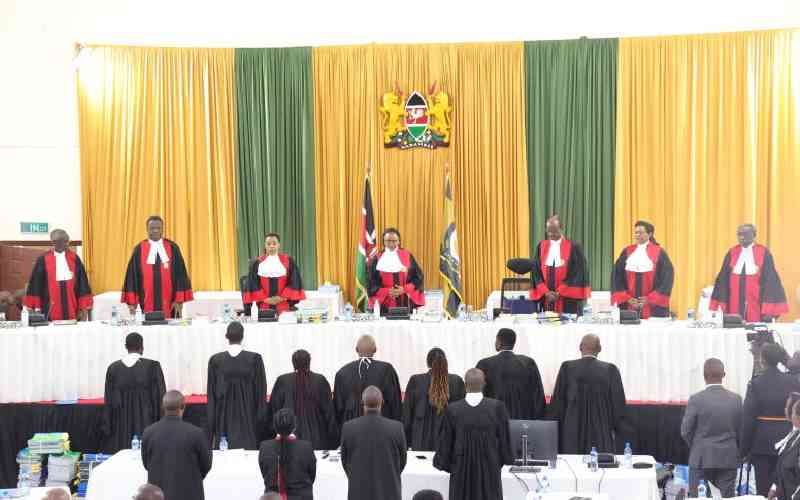×
The Standard e-Paper
Home To Bold Columnists

Tomorrow's judgment by the Supreme Court of Kenya (SCOK) on the presidential election petition (2022) could upset the power matrix in Kenya, with far reaching consequences for power wielders on both sides of the political divide.
If Dr William Ruto's declaration as president-elect is upheld, there will be a major shift in the centre of power. It will bring forth new sheriffs in town, while concurrently producing orphans and widows, out of individuals who have been the lords of power in recent times.